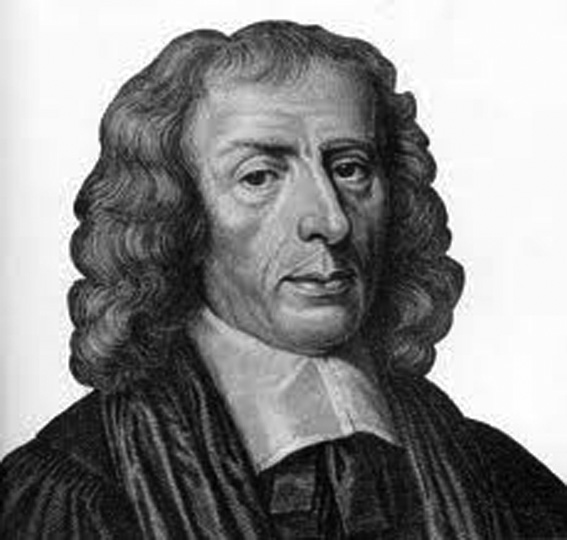Henry More (1615-1687)
THEOLOGIAN and philosopher Henry More’s father was Alexander More who had been mayor of Grantham on several occasions. He was the seventh son of Alexander and Anne.
Alexander was financially well off and able to give his son a top class education. Little is known of his childhood except for a few comments More makes himself in the Preface of his Collected Works. There he writes his parents were great Calvanists and very pious.
After attending Grantham Free School (King’s School), More was sent to Eton when he was 14 years old.
Here he rejected Calvinism which had the notion of predestination as a metaphysical necessity and the basis of faith. More came to the belief, which he held strongly throughout his life, that salvation was possible though goodness.
During this time his father had put his upbringing in the hands of his uncle Gabriel More who tried to prevent the young More from being so forward by flogging him to try to make him return to the Calvinist ideas about free-will. Flogging certainly did nothing to return More to Calvinism, perhaps it had just the opposite effect.
In 1631 he entered Christ’s College, Cambridge, at about the time John Milton was leaving it. He took his BA in 1635, his MA in 1639, and immediately afterwards became a fellow of his college, turning down all other positions that were offered.[
He would not accept the mastership of his college, to which, it is understood, he would have been preferred in 1654, when Ralph Cudworth was appointed. In 1675, he finally accepted a prebend in Gloucester Cathedral, but only to resign it in favour of his friend Dr. Edward Fowler, afterwards bishop of Gloucester.
More taught many notable pupils, including Anne Finch, sister of Heneage Finch, subsequently Earl of Nottingham. She later became Lady Conway, and at her country seat at Ragley in Warwickshire, More would spend “a considerable part of his time.”
She and her husband both appreciated him, and amidst the woods of this retreat he wrote several of his books.
Like Newton, More was born close to and attended the free school at Grantham. In fact he had lodgings in Grantham for seven years with a Mr Clark, the brother of a teacher at the Free School. More, who was about 30 years older than Newton, often returned to his home town of Grantham and when he did so he lived with one of the two Clark brothers. Therefore when More was a major figure at Cambridge he must have got to know the young pupil Newton.
More’s ideas of space and gravity could well have influenced younger Newton?
More never sought advancement within Cambridge, refusing to stand for positions such as Master. He was a modest man who felt that he did not have the necessary talents for such roles.
He died at Cambridge.





Leave a Reply
You must be logged in to post a comment.